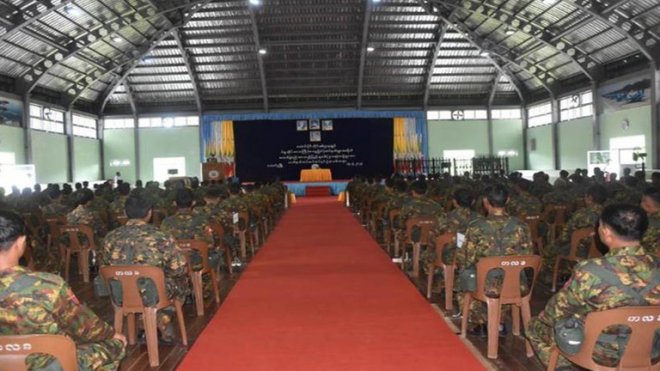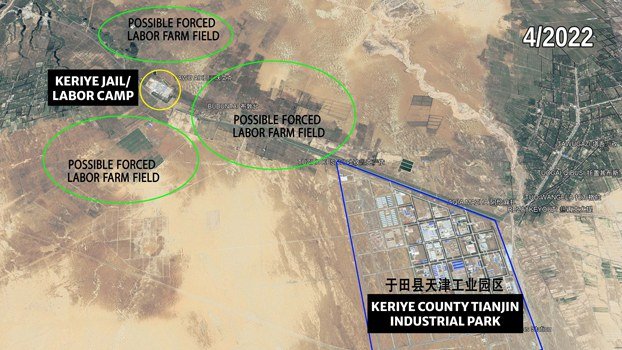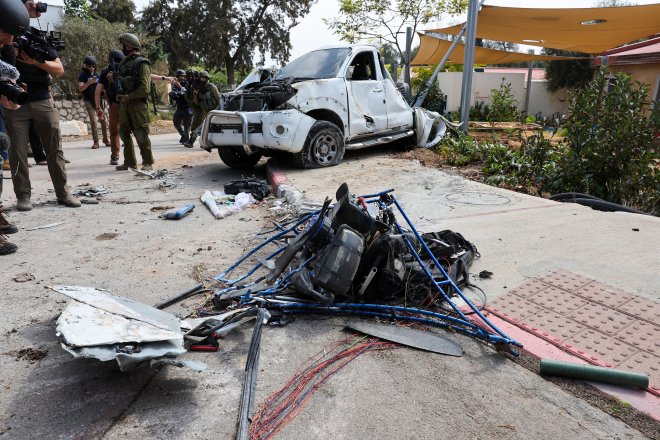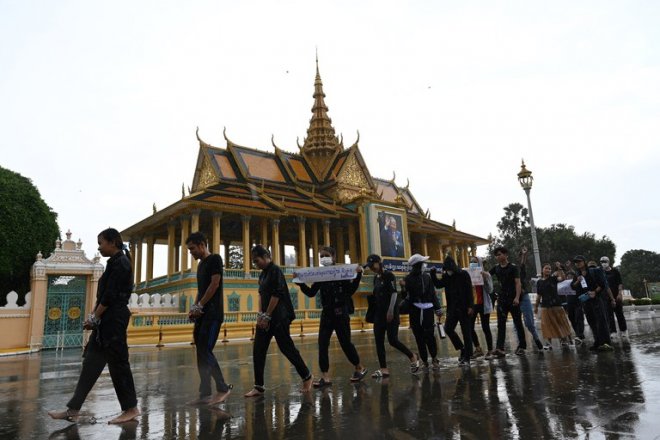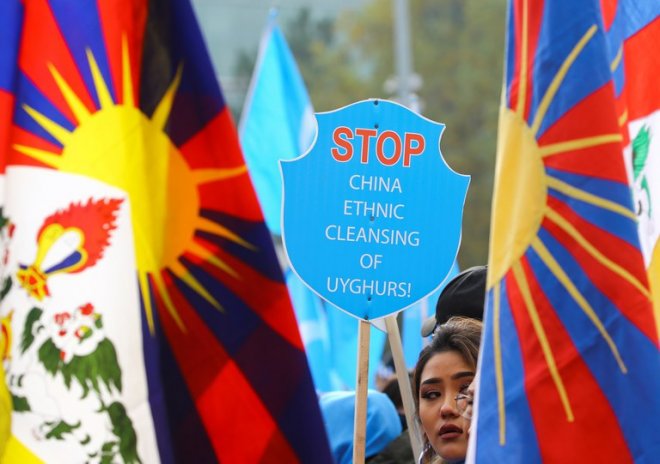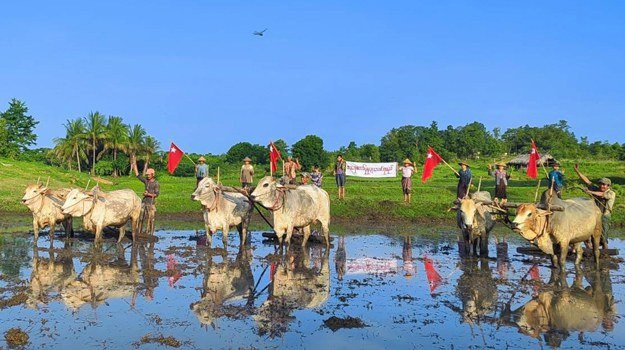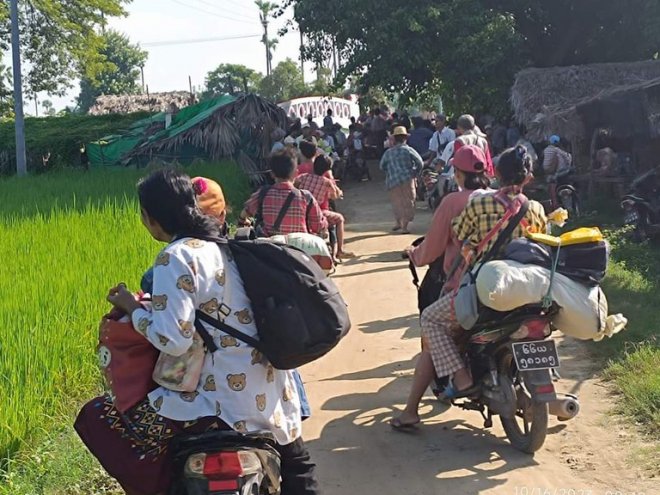China is blocking Tibetan monks and writers from spreading religious content online
China has been rigorously barring Tibetan writers, Buddhist monks and other influential people from spreading religious content online without prior approval, sources told Radio Free Asia.
The clampdown, based on a March 2022 regulation, gives authorities additional power to restrict online content that the ruling Communist Party considers damaging and is yet another example of how China has ramped up restrictions on expression, religion and culture in the western Tibet Autonomous Region.
“As the Chinese government started implementing the law, Tibetan writers and those who are influential have been particularly targeted and scrutinized,” said a Tibetan from inside Tibet who declined to be identified for safety reasons.
“These sections of the people are completely barred from sharing or speaking about Buddhism or anything educational without seeking permission from the Chinese government,” he said. “They are not even allowed to print out any sort of these religious documents.”
The regulation bans foreign organizations and individuals from spreading such content except for those who have obtained government licenses. It requires them not to have had any criminal charges in the past three years.
“The Chinese government has not only denied basic freedom of expression for the Tibetans, but now Tibetan writers and those who are influential are completely barred from sharing anything,” said Pema Gyal, a researcher at London-based Tibet Watch. “So, in recent years we have hardly seen any content shared by them on social platforms.”
Public speaking banned
Among those barred are educators Yonten Gatos and Sayul Gyaltsen, Tibet historian Tsering Dhondup, and Sonam, the administrator of Potala Palace in the regional capital Lhasa, the Tibetan source from inside the region said.
Other Tibetans have been arrested and imprisoned on charges of “inciting separatism” and “endangering state security,” according to Tibetan sources, underscoring Beijing’s ongoing drive to destroy the influence of people whose views on religion and life in Tibet and Tibetan-populated regions of China go against official Chinese narratives.
Another Tibetan source from inside the region sees the regulation as a double-standard.
“The Chinese government often denies any license or permits that could give the Tibetans to teach or educate publicly, and recently it has become even more difficult under the regulation,” he said.
“On the contrary, there is so much content shared on social media that is misleading and inappropriate, and for those the Chinese government imposes no restrictions,” he said.
Translated by Tenzin Dickyi for RFA Tibetan. Edited by Roseanne Gerin and Malcolm Foster.
[圖擷取自網路,如有疑問請私訊]
The clampdown, based on a March 2022 regulation, gives authorities additional power to restrict online content that the ruling Communist Party considers damaging and is yet another example of how China has ramped up restrictions on expression, religion and culture in the western Tibet Autonomous Region.
“As the Chinese government started implementing the law, Tibetan writers and those who are influential have been particularly targeted and scrutinized,” said a Tibetan from inside Tibet who declined to be identified for safety reasons.
“These sections of the people are completely barred from sharing or speaking about Buddhism or anything educational without seeking permission from the Chinese government,” he said. “They are not even allowed to print out any sort of these religious documents.”
The regulation bans foreign organizations and individuals from spreading such content except for those who have obtained government licenses. It requires them not to have had any criminal charges in the past three years.
“The Chinese government has not only denied basic freedom of expression for the Tibetans, but now Tibetan writers and those who are influential are completely barred from sharing anything,” said Pema Gyal, a researcher at London-based Tibet Watch. “So, in recent years we have hardly seen any content shared by them on social platforms.”
Public speaking banned
Among those barred are educators Yonten Gatos and Sayul Gyaltsen, Tibet historian Tsering Dhondup, and Sonam, the administrator of Potala Palace in the regional capital Lhasa, the Tibetan source from inside the region said.
Other Tibetans have been arrested and imprisoned on charges of “inciting separatism” and “endangering state security,” according to Tibetan sources, underscoring Beijing’s ongoing drive to destroy the influence of people whose views on religion and life in Tibet and Tibetan-populated regions of China go against official Chinese narratives.
Another Tibetan source from inside the region sees the regulation as a double-standard.
“The Chinese government often denies any license or permits that could give the Tibetans to teach or educate publicly, and recently it has become even more difficult under the regulation,” he said.
“On the contrary, there is so much content shared on social media that is misleading and inappropriate, and for those the Chinese government imposes no restrictions,” he said.
Translated by Tenzin Dickyi for RFA Tibetan. Edited by Roseanne Gerin and Malcolm Foster.
[圖擷取自網路,如有疑問請私訊]
|
本篇 |
不想錯過? 請追蹤FB專頁! |
| 喜歡這篇嗎?快分享吧! |
相關文章
AsianNewsCast








